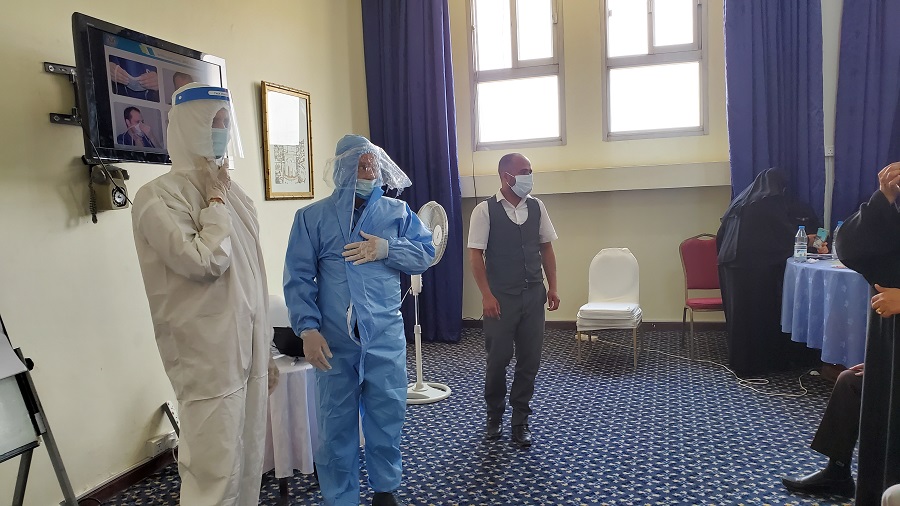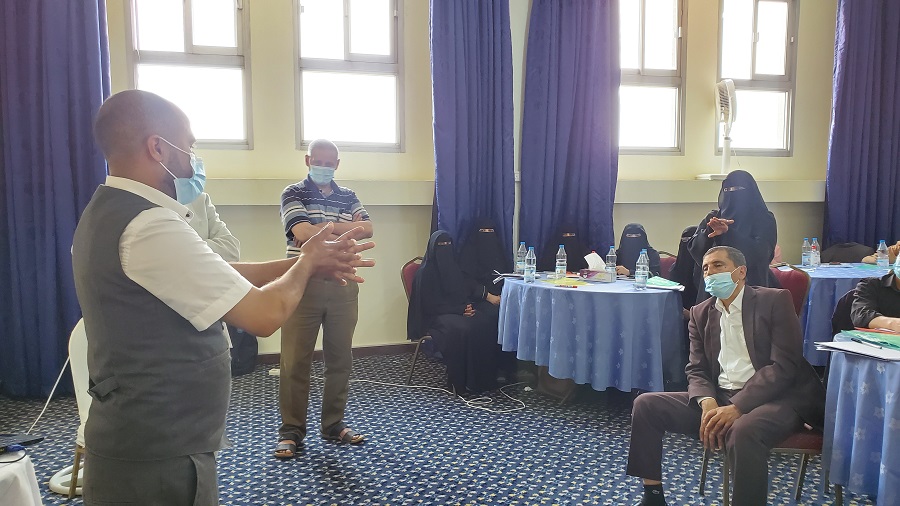 The training demonstrated to health workers how to correctly put on and remove personal protective equipment
The training demonstrated to health workers how to correctly put on and remove personal protective equipment
Aden | Sana’a, 1 March 2022 – Over the past 2 years, communities everywhere have seen how quickly COVID-19 spreads. Even aside from the pandemic, in low- and middle-income countries, an estimated one in 10 people who are hospitalized will acquire a health care-associated infection. While data on the prevalence of such infections caused by the COVID-19 virus is not yet available in Yemen, WHO and local authorities, with the support of the World Bank, are investing in strengthening knowledge, skills and capacities to prevent infections in health facilities.
Through the Yemen COVID-19 Response Project, 87 training sessions have been held, targeting 3055 health care workers in 37 isolation units, supported by the Project across 14 governorates in Yemen.
The training aimed to enhance the knowledge of health workers and strengthen the implementation of protocols for infection prevention and control to provide a safe environment for health workers and patients.
 Hand hygiene practices were demonstrated to participants
Hand hygiene practices were demonstrated to participants
Dr Hashim Abdullah Al Barawi, an intensive care nurse at Dhamar General Hospital, who participated in the training said, “The training was excellent. We used to misunderstand the safe usage of some of the medical equipment. The training cleared this confusion for us.” His colleague, Dr Faizah Al Riashi, Obstetric Emergency Supervisor, added “We do have backgrounds in some of the issues addressed through the training but practical demonstration was lacking which this training covered.”
They also expressed a desire that such capacity-building activities would take place for as many health workers as possible in Yemen to improve their performance and keep them up to date on safe infection prevention and control practices.
Note: The Yemen COVID-19 Response Project was launched in 2020 to detect and respond to the threat posed by COVID-19 and prevent the virus from spreading among the population of Yemen, through funding, supporting and strengthening the national health system in the country.
Related link
WHO health care-associated infections fact sheet


